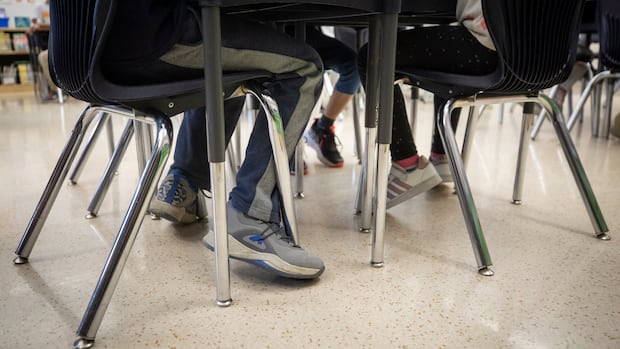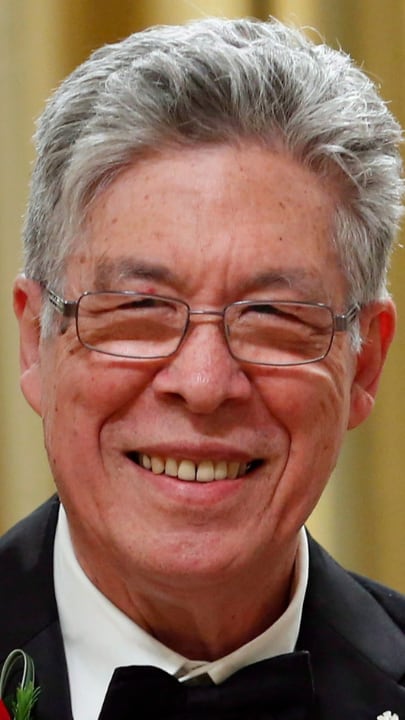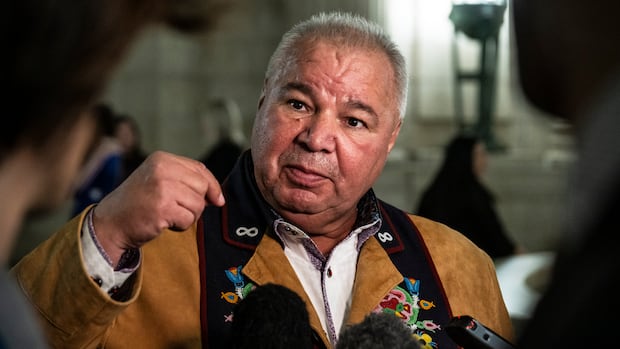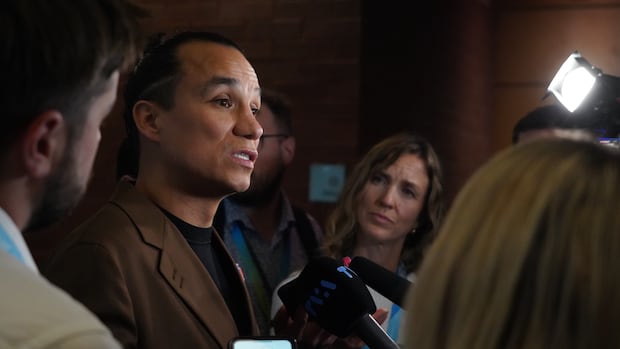Listen to this article
Estimated 5 minutes
The audio version of this article is generated by text-to-speech, a technology based on artificial intelligence.
A judge has dismissed the Manitoba Wildlife Federation's request for court intervention to stop a First Nation's checkstop, which allegedly prevented licensed moose hunters from crossing earlier this fall.
The Manitoba Wildlife Federation asked Court of King's Bench to stop Bloodvein First Nation from "blockading" Rice River Road before licensed moose hunting resumes in the region on Monday, according to court documents filed last month.
Bloodvein said in late August that it would start turning away licensed hunters from its Rice River Road checkstop, several kilometres south of the community, in order to address concerns about declining moose populations.
The checkstop was originally set up on an access road just outside of the community in May to prevent drugs and alcohol from entering, Bloodvein said.
In his decision delivered Thursday, Justice Theodor Bock said licensed moose hunters would be "inconvenienced, but not wholly prevented" from hunting in the affected game hunting areas due to the checkstop.
"Even if the checkstop were used as an illegal blockade against licensed moose hunters, in the manner suggested by the Manitoba Wildlife Federation, I am not convinced it would permanently prevent any licensed moose hunters from legally hunting elsewhere in Manitoba," said Bock.
Kevin Toyne, a lawyer representing the Manitoba Wildlife Federation — a conservation organization representing hunters in the province — argued in court earlier this month that the First Nation's checkstop is an illegal blockade of a public highway.
He said two hunting parties were unable to pass through the checkstop during the first leg of moose hunting season in September.
Bloodvein Chief Lisa Young said in court earlier this month that licensed hunters would not be barred from passing through the checkstop during the December leg of moose hunting season.
Blockade an 'open question'Both Toyne and Chris Heald, the federation's senior policy adviser, described the court proceedings as a "victory" for Manitoba hunters.
"At the end of the day, the Manitoba Wildlife Federation was successful in the objective that it had [in] ensuring licensed moose hunters have access to provincial lands north of the checkstop," Toyne told reporters outside of the courthouse.
"The bigger picture is that Manitobans who aren't attempting to smuggle drugs and alcohol into that community can still use that road."
 Kevin Toyne, left, a lawyer representing the Manitoba Wildlife Federation, and Chris Heald, the federation's senior policy adviser, described the court decision as a 'victory' for hunters. (Travis Golby/CBC)
Kevin Toyne, left, a lawyer representing the Manitoba Wildlife Federation, and Chris Heald, the federation's senior policy adviser, described the court decision as a 'victory' for hunters. (Travis Golby/CBC)Judge Bock said Bloodvein has the right to protest Manitoba's issuing of moose hunting licences on its traditional territory, but "not by means of an illegal blockade."
But whether Bloodvein's checkstop constituted a blockade remains "an open question," as there appears to be no evidence that any other hunting parties were unable to cross, said Bock.
In a Sept. 19 letter to the wildlife federation, Assistant Commissioner Scott McMurchy, the commanding officer of the Manitoba RCMP, wrote that nothing had happened at the checkstop that "would require the RCMP to investigate and/or intervene," Bock's decision said.
There's no evidence the RCMP's assessment of the situation has changed since then, the judge added.
"Nevertheless, the evidence satisfies me that Manitoba Wildlife Federation has raised a serious question to be tried concerning Bloodvein First Nation's use of the checkstop against licensed moose hunters," Bock said.
However, the wildlife federation's request for an injunction via a notice of application "failed to follow the proper procedure," and would be better served by a statement of claim, he said.
Chief Young said any hunters who do cross the checkstop in December will be shadowed by Bloodvein's land guardians, as well as Manitoba Conservation and First Nation safety officers, because the areas north of the checkstop hold dangerous terrain for even the most experienced hunters.
"These hunters need to understand that it's not about keeping them out, and it's all about them being safe," she said at a news conference Thursday.
 Bloodvein First Nation Chief Lisa Young, centre, is pictured alongside other Indigenous leaders in Manitoba at a Thursday news conference. She says she's 'deeply relieved' a judge has dismissed a request to stop her community's checkstop, which she said is meant to prevent drugs and alcohol from entering. (Travis Golby/CBC)
Bloodvein First Nation Chief Lisa Young, centre, is pictured alongside other Indigenous leaders in Manitoba at a Thursday news conference. She says she's 'deeply relieved' a judge has dismissed a request to stop her community's checkstop, which she said is meant to prevent drugs and alcohol from entering. (Travis Golby/CBC)"They'll be welcomed, guided — they'll get to see for themselves there's no camping sites."
The checkstop has been crucial to help community members seek treatment for drug and alcohol abuse, she said.
"Establishing the checkpoint was not an act of confrontation — it was an act of care," she said.
"I'm deeply relieved and grateful that the justice system has acknowledged what we have long said: the checkpoint is about protecting the safety, health and the dignity of our people."
Review of buffer zone remainsIn September, the province introduced a hunting buffer zone in specific gaming areas, affecting an area of 500 metres on either side of Rice River Road, and on either side of the Bloodvein River and Namay Falls.
The buffer was introduced on Sept. 15 — the opening day of moose season for rifle hunters in the region — and will remain in place for the 2025 hunting season only.
The Manitoba Wildlife Federation also asked the court last month for a judicial review of the buffer zone.
Bock ruled that the request for an injunction and a judicial review were unrelated matters. The judicial review is still pending.
WATCH | Judge dismisses wildlife federation's call for halt to Bloodvein checkstop:First Nation leaders are celebrating after a judge dismissed a request from the Manitoba Wildlife Federation to stop a checkstop near Bloodvein River First Nation that allegedly prevented licensed moose hunters from crossing earlier this fall.










